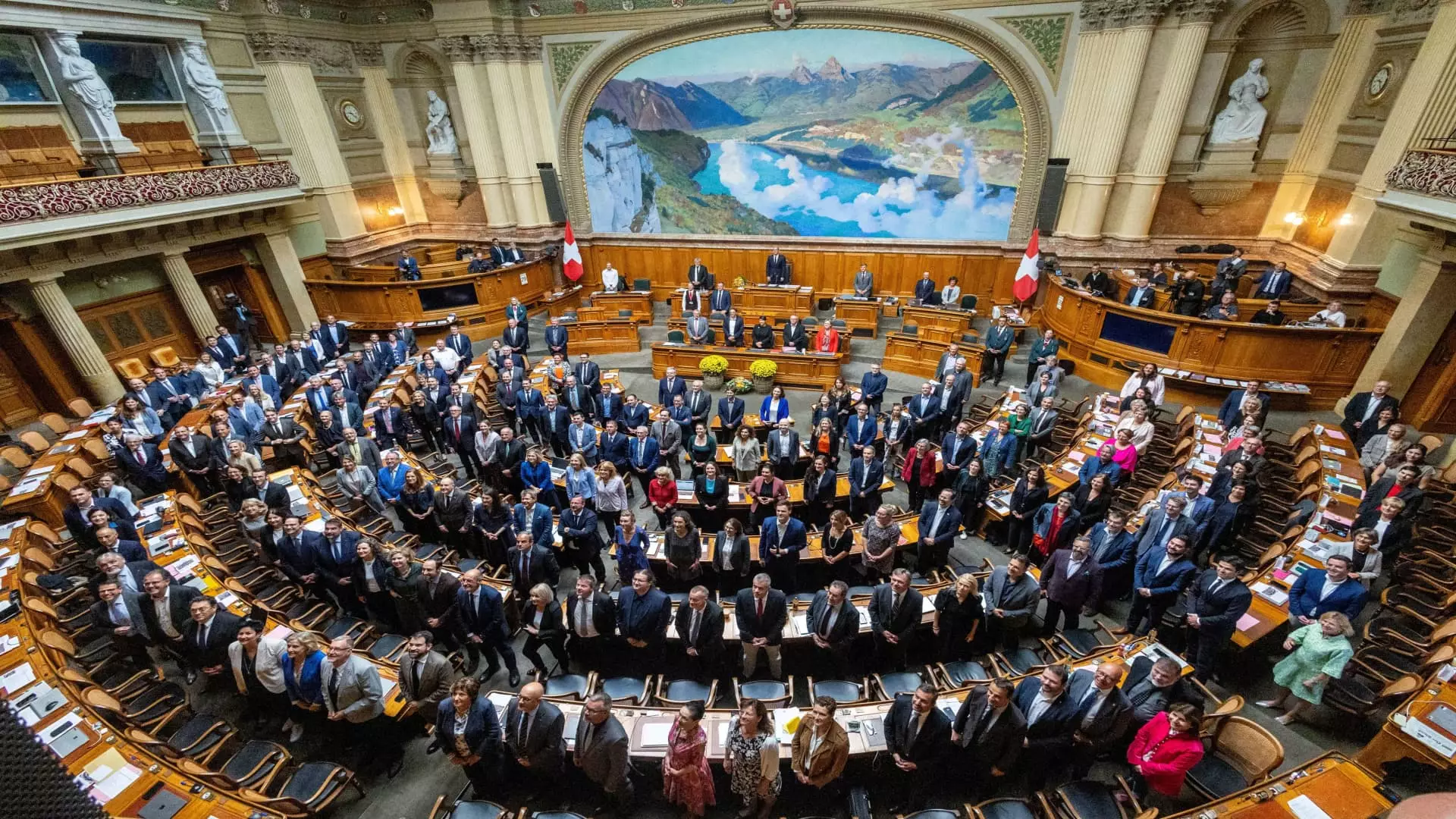The legislative election in Switzerland has showcased the increasing influence of the right-wing populist party, while also witnessing a decline in support for the leading Green party. In a reflection of the broader European sentiment, voters grapple with the challenges of balancing right-wing populist politics and combating climate change, amidst rising inflation and other socioeconomic concerns. This article delves into the outcome of the election, the shifting political landscape, and the key issues that have influenced Swiss voters.
According to exit polls, Switzerland’s right-wing Swiss People’s Party is projected to secure 29% of the vote, indicating a notable increase from the previous election. This surge in support solidifies the party’s position as the largest faction in parliament. The right-wing populists have successfully capitalized on the prevailing concerns surrounding issues such as migration, rising healthcare costs, and climate change.
In contrast, the leading Green party witnessed a decline, losing over 4 percentage points and falling below the 10% mark. This setback highlights a shift in priorities among voters. The election results suggest that pocketbook issues, including the rising fees for health insurance, have taken precedence over concerns about global warming. This change in voter sentiment underscores the complexities of striking a balance between economic well-being and environmental sustainability.
The emergence of a new political alliance called The Center, a fusion of the center-right Christian Democrat and Bourgeois Democrat parties, marked its parliamentary election debut with promising voter support. Early indications from exit polls by the gfs.bern agency suggest that The Center is poised to surpass the free-market Liberal party in voter backing. This development signals a potentially significant shift in Switzerland’s political landscape, contributing to the diversification of the mainstream parties.
Pre-election polls and anecdotes from voters shed light on the main preoccupations of the Swiss electorate. Rising healthcare costs, driven by the obligatory, free market-based health insurance system, remain a crucial issue. Additionally, the impact of climate change on Switzerland’s glaciers has become a matter of concern. Lastly, worries related to migrants and immigration have also influenced voters’ choices.
The opinions on climate change among Swiss voters appear to be diverse. Some, like Claudine Juillard, a retiree, emphasize the increasing cost of living and prioritize economic considerations in their voting choices. Others, like Marine Chatelenat, a teacher, view the planet’s well-being as a fundamental priority, highlighting the interconnectedness of environmental issues with other socio-economic challenges. These differing perspectives reflect the complexity of balancing immediate needs with the long-term effects of climate change.
The outcome of the legislative election will shape the composition of Switzerland’s executive branch, known as the Federal Council. The departure of President Alain Berset at the end of the year paves the way for Vice President Viola Amherd, a centrist, to assume the presidency. As the new parliament takes shape, policy decisions regarding crucial matters, such as sanctions on Russia and the classification of Hamas as a terror organization, will contribute to defining Switzerland’s stance on the global stage.
Switzerland’s legislative election exemplifies the ongoing struggle faced by voters in striking a balance between right-wing populist agendas and the imperative to address climate change. The strengthening of the right-wing populist party, coupled with the decline of the leading Green party, underscores the complexities of navigating socio-economic realities and environmental sustainability. As Switzerland adapts its self-image as a non-EU nation, the election results will set the tone for the country’s approach to issues ranging from healthcare costs and migration to climate change. Ultimately, the election highlights the dynamic nature of Swiss politics and the need for comprehensive policy solutions that address the concerns of all segments of society.


Leave a Reply